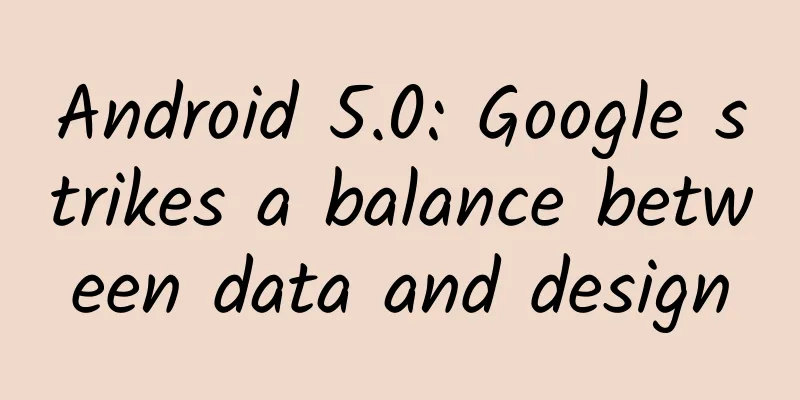Two fates: Jack Ma and his rivals

|
There are not many people who have both good fortune and luck. Jack Ma after 2010 can be said to have both good fortune and luck. This is related to Jack Ma's personal foresight and Alibaba's competitors, who made many mistakes in judging the situation, especially the enemy and our own situation. The so-called competitors of Jack Ma here mainly refer to Ma Huateng and Robin Li. Only these two people can shake the Alibaba empire from the root. Jack Ma's foresight is unquestionable. He was a computer illiterate who firmly believed that the Internet would change the world in 1994, and he remained steadfast in the following 20 years. It must be said that Jack Ma is a computer illiterate with foresight. In terms of predictions about the future, Bill Gates can be compared to him. He predicted in 1975 that everyone would have a computer on their desk. It is difficult to have foresight and to stick to this foresight, but Jack Ma has done it. It is precisely because of his foresight and his persistence in his vision that Jack Ma finally reached the pinnacle of his life: in terms of market value, Alibaba is US$300 billion, Tencent is more than US$150 billion, and Baidu is more than US$80 billion. The market value of Alibaba is equal to that of Tencent plus two Baidus. Jack Ma is worth more than US$30 billion, catching up with the richest Chinese, Li Ka-shing. Back in 2010, who could have foreseen the situation today? In fact, the next four years were a period of constant trouble in Alibaba's development history. The share price of Alibaba's Hong Kong-listed company never recovered until it was privatized and delisted. The B2C era arrived, replacing C2C as the mainstream. Between Tmall and Taobao, Alibaba leaned towards the former, but eventually angered small buyers. The Taobao tragedy made Jack Ma face a double crisis of morality and integrity. The Alipay VIE incident attracted worldwide attention. Of course, there was also the challenge from JD.com. Liu Qiangdong started from the business of moving boxes and B2C, which Jack Ma despised, and almost overturned Jack Ma's e-commerce empire. Compared with his competitors, these are just a drop in the bucket. After 2010, although Jack Ma faced many challenges, his biggest competitors turned their guns around and no longer considered him a competitor, which gave Jack Ma a fairly relaxed environment and external pressure, allowing him to focus on solving internal problems. In fact, until 2010, Alibaba was constantly fighting, first with Huicong and eBay, then Baidu and Tencent. In November 2007, Alibaba went public in Hong Kong, with a share price of nearly HK$4 billion and a market value of about HK$200 billion, exceeding US$26 billion. At that time, Baidu and Tencent were close, about HK$100 billion and US$13 billion. The market value of Baidu + Tencent is about equal to Alibaba. The situation seven years ago is very similar to today, seven years later. Baidu and Tencent both regard Alibaba as their biggest competitor. In 2008, Taobao and Baidu search blocked each other, while Tencent continued to bite Alibaba through PaiPai and CaifuTong, and this situation continued until 2010. 2008 to 2010 were the three most intense years for Alibaba. In 2010, something happened, which was the 3Q War. In the history of the Internet, the 3Q War was a landmark war, known as the First World War of the Internet: Baidu, Tencent, Kingsoft, Keniu, Maxthon, etc. were on one side, and the 360 camp included Kugou, The World, Master Lu, Xunlei, Qvod, Baofeng Video, Duowan, UCWEB, Renren, etc., while Sohu, NetEase, Shanda, etc. were on the sidelines. In a sense, the "Little Three War" was a continuation of the 3Q War. November 3, 2010, is known as the "Internet sleepless night". Employees of major Internet companies worked overtime all night: the parties involved in the war discussed countermeasures, and the companies not involved in the war watched the development of the situation to determine the next step. Tencent went right, 360 went left, and each company was choosing its own team. Things have changed in a wonderful way. Alibaba, the most capable fighter, did not appear on the battlefield. In a sense, 360 replaced Alibaba and became the target of public criticism. History is always full of drama. On September 1, 2010, Alibaba CEO Wei Zhe said in a media interview: "Alibaba no longer needs Yahoo!, Yahoo! is a company facing bankruptcy." One day later, a Yahoo spokesperson strongly stated that Yahoo! would maintain its 39% stake in Alibaba. What does this mean? The war between Alibaba's management and major shareholders has begun. For Alibaba, internal conflicts have replaced external conflicts as the main conflict. Subsequently, Jack Ma, Jerry Yang, and Masayoshi Son fought openly and secretly. The subsequent VIE incident and Alibaba's management adjustments (Wei Zhe's resignation) are all the development and continuation of this incident. Another layer of pressure comes from within Alibaba's ecosystem. The Taobao demise and the rise of JD.com have put pressure on Alibaba. For Alibaba's competitors, if they put pressure on Alibaba from the outside at this time, the consequences of the three-way squeeze would be disastrous. The 3Q war broke out and later evolved into the first world war of the Internet with many warlords fighting for supremacy. This made Jack Ma feel a lot more relaxed as he no longer had to fight on three fronts. Tencent later invested in Kingsoft, Cheetah, and Sogou, and invested heavily in unprofitable security businesses, spending a lot of energy on building a moat against 360. Baidu also acquired 91 Wireless for US$1.9 billion and made great efforts to develop security to resist 360, but at the same time left opportunities for Taobao in the vertical search field. Security is not as profitable as other businesses, and its depth and breadth are not comparable to those of search, instant messaging and other businesses. The market value of the world's largest security company is only 10 billion US dollars. However, due to the existence of 360, Tencent and Baidu have invested more than rationally in this business, which has affected the development of their core businesses. As search engines, Baidu, the dominant player in the comprehensive search field, has long fallen behind Taobao, a vertical search for shopping. Although the market space for comprehensive search is worth trillions, Baidu is getting further and further away. Tencent's failure in e-commerce, search and other fields in recent years is largely due to its lack of focus, but fortunately, WeChat has come to the rescue. Ma Yun then focused on two things: the pressure within the ecosystem and the power struggle with the major shareholders. Taobao struggled hard, but small buyers were just a mob and could not withstand Alibaba's soft and hard tactics, so they split and disintegrated; JD.com responded by spinning off Tmall, and Ma Yun completed the reconstruction of Taobao; the war with the major shareholders was the most protracted, and it was not until 2014 before the listing that it was finally resolved. In a sense, Zhou Hongyi diverted the attention of the two giants, Tencent and Baidu, and led them off the right track. However, in the Internet world, people don’t care about grudges or hatred, but only about gains and losses. Because of the 3Q war, Alibaba gained a golden period of development for about 4 years and eventually became the leader. In a sense, Jack Ma has had mixed luck in recent years, because he did a lot right and his opponents did a lot wrong. As a winner of Toutiao's Qingyun Plan and Baijiahao's Bai+ Plan, the 2019 Baidu Digital Author of the Year, the Baijiahao's Most Popular Author in the Technology Field, the 2019 Sogou Technology and Culture Author, and the 2021 Baijiahao Quarterly Influential Creator, he has won many awards, including the 2013 Sohu Best Industry Media Person, the 2015 China New Media Entrepreneurship Competition Beijing Third Place, the 2015 Guangmang Experience Award, the 2015 China New Media Entrepreneurship Competition Finals Third Place, and the 2018 Baidu Dynamic Annual Powerful Celebrity. |
<<: The barbaric P2P online lending has seen the dawn of civilization
>>: APP Packaging Party’s Business Secrets
Recommend
Catnip: You never imagined it, humans, but I am the "master" of your cat master
For many cats, the smell of catnip can easily mak...
Apple iOS 14 is released today! These features you never thought of are all worth trying
June 23, early this morning, Apple held the WWDC2...
Qualcomm founder publicly reviewed: How the world's top 500 companies select their successors
On December 12th, West Coast time, at Qualcomm he...
What sacrifices have we made for the so-called true full-screen mobile phone?
Various full-screen mobile phones Since the launc...
Don’t bear your knee pain! Remember these 8 knee care tips
As we enter summer and temperatures soar across t...
How good is the “space courier guy” who is popular on the Internet?
As the first "space courier" during the...
Everyone must know the truth about HPV! Do these 5 things to stay away from HPV infection!
Many people have heard of HPV. However, the cause...
Information flow advertising account optimization methodology, account optimization from 5 directions and dimensions
When doing information flow advertising , I swear...
Tesla, Toyota and more than 100 other car manufacturers' secrets leaked, with 157 GB of core secrets leaked
According to the New York Times, security researc...
Why can't we have blue hair?
On January 6 this year, China Post issued stamps ...
How to create an advertisement that touches people’s hearts? Look here
We all know that marketing is a series of activit...
How to configure large server rental? Is it expensive to rent a large server?
How to configure large server rental? Is it expen...
Electric Technology News: The Chinese electric supercar that beat Tesla at the Geneva Motor Show has a power of 1,350 horsepower
Speaking of electric sports cars, who do you thin...
What is the specific list of closed communities in Shanghai in 2022? Attached is the latest list of quarantine communities!
Recently, the local epidemic in Shanghai has attr...
APP promotion: This should be the most complete ground promotion plan!
APP promotion online promotion is important, but ...









